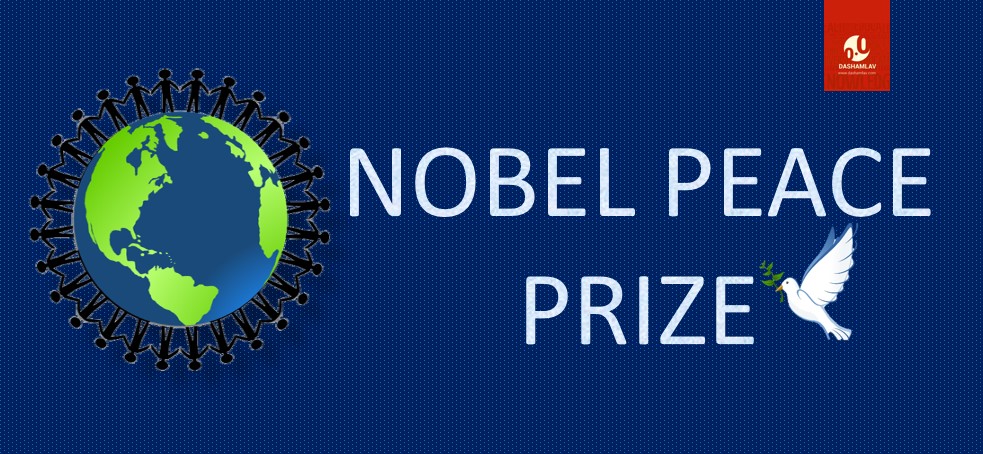Established by the will of Alfred Nobel, Nobel Peace Prize is awarded to those “done the most or the best work for fraternity between nations, for the abolition or reduction of standing armies and for the holding and promotion of peace congresses”. It is being awarded annually since 1901. The award has been subject to many controversies due to its political nature.
Who Selects the Nobel Peace Prize Winner?
Norwegian Nobel Committee selects the Nobel Peace Prize Laureates. The Storting Parliament (Norwegian Parliament) appoints the members of the Norwegian Nobel Committee. The committee consists of a total of five such members.
Where is the Nobel Peace Prize Awarded?
The Nobel Peace Prize is awarded in Oslo, Norway. Except for the Nobel Peace Prize, all other Nobel Prizes in Physics, Chemistry, Physiology or Medicine, Literature, and Economics are awarded in Stockholm, Sweden.
Eligibility Criteria for the Nobel Peace Prize
There is no direct qualifying eligibility for the Nobel Peace Prize. One cannot directly nominate himself or herself for the Peace Prize. Qualified nominators submit the names of nominees for the Nobel Peace Prize.

Who is a Qualified Nominator for the Nobel Peace Prize?
As per the Nobel Foundation statutes, only those nominations are considered valid which are submitted by a person falling within any of the following categories:
| 1. | Members of national assemblies and national governments (cabinet members/ministers) of sovereign states as well as current heads of states |
| 2. | Members of The International Court of Justice in The Hague and The Permanent Court of Arbitration in The Hague |
| 3. | Members of l’Institut de Droit International |
| 4. | Members of the international board of the Women’s International League for Peace and Freedom |
| 5. | University professors, professors emeriti and associate professors of history, social sciences, law, philosophy, theology, and religion; university rectors and university directors (or their equivalents); directors of peace research institutes and foreign policy institutes |
| 6. | Persons who have been awarded the Nobel Peace Prize |
| 7. | Members of the main board of directors or its equivalent of organizations that have been awarded the Nobel Peace Prize |
| 8. | Current and former members of the Norwegian Nobel Committee (proposals by current members of the Committee to be submitted no later than at the first meeting of the Committee after 1 February) |
| 9. | Former advisers to the Norwegian Nobel Committee |
What is 50 years of secrecy rule?
The Norwegian Nobel Committee is restricted under the statutes of the Nobel Foundation from making any disclosure about the names of Nobel Prize nominees to media or even the candidate themselves. No disclosure whatsoever for 50 years!
Whenever any name crops up regarding a possible nominee or as to the possible outcome of Nobel Peace Prize results, it is mostly guesswork or likely a piece of information which may be put out by the people behind the nomination.
Concerns have been raised by the nominees, nominators, and even investigators about the 50 years secrecy rule. However, as on date, the rule remains intact!
Use the citation below to add this article to your bibliography
"Nobel Peace Prize: Nomination Process, Eligibility Criteria and 50 Years Secrecy." Dashamlav.com. Web. 27 July 2024. <https://dashamlav.com/nobel-peace-prize-nomination/>
Dashamlav.com, "Nobel Peace Prize: Nomination Process, Eligibility Criteria and 50 Years Secrecy." Accessed 27 July 2024. https://dashamlav.com/nobel-peace-prize-nomination/
"Nobel Peace Prize: Nomination Process, Eligibility Criteria and 50 Years Secrecy." (n.d.). Dashamlav.com. Retrieved 27 July 2024 from https://dashamlav.com/nobel-peace-prize-nomination/
